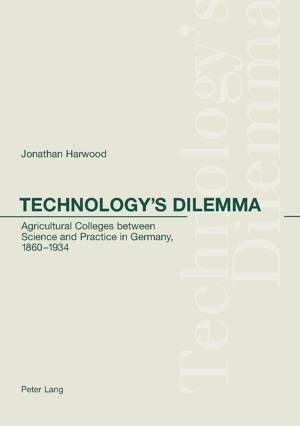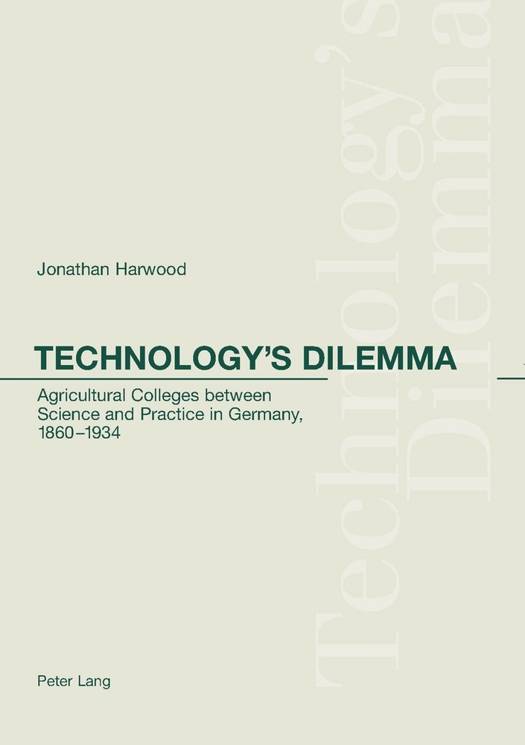
- Afhalen na 1 uur in een winkel met voorraad
- Gratis thuislevering in België vanaf € 30
- Ruim aanbod met 7 miljoen producten
- Afhalen na 1 uur in een winkel met voorraad
- Gratis thuislevering in België vanaf € 30
- Ruim aanbod met 7 miljoen producten
Zoeken
Technology's Dilemma
Agricultural Colleges Between Science and Practice in Germany, 1860-1934
Jonathan Harwood
Paperback | Engels
€ 82,45
+ 164 punten
Omschrijving
In recent decades critics in several countries have complained that education in agriculture, engineering and medicine has drifted away from an earlier practical orientation, becoming increasingly irrelevant to actual needs. Since existing histories have surprisingly little to say about the causes of such 'academic drift', this book develops a model of institutional dynamics which explains why different institutions have evolved closer to the worlds of 'science' or 'practice'.
The model is based on a study of German agricultural colleges and the study surveys the evolution of the agricultural curriculum during the nineteenth and early twentieth centuries, as it swung back and forth between the poles of science and practice. It makes a comparative analysis of five colleges in the decades around 1900, some of them more science-oriented and others more practical, and follows the gradual transformation over half a century of two colleges in Bavaria which had to compete for recognition and funding. The wider relevance of these findings is also explored, not only for the history of agricultural education in the United States and Britain but also for engineering, medicine and management education, past and present.
The model is based on a study of German agricultural colleges and the study surveys the evolution of the agricultural curriculum during the nineteenth and early twentieth centuries, as it swung back and forth between the poles of science and practice. It makes a comparative analysis of five colleges in the decades around 1900, some of them more science-oriented and others more practical, and follows the gradual transformation over half a century of two colleges in Bavaria which had to compete for recognition and funding. The wider relevance of these findings is also explored, not only for the history of agricultural education in the United States and Britain but also for engineering, medicine and management education, past and present.
Specificaties
Betrokkenen
- Auteur(s):
- Uitgeverij:
Inhoud
- Aantal bladzijden:
- 288
- Taal:
- Engels
Eigenschappen
- Productcode (EAN):
- 9783039102990
- Verschijningsdatum:
- 23/03/2005
- Uitvoering:
- Paperback
- Formaat:
- Trade paperback (VS)
- Afmetingen:
- 152 mm x 229 mm
- Gewicht:
- 390 g

Alleen bij Standaard Boekhandel
+ 164 punten op je klantenkaart van Standaard Boekhandel
Beoordelingen
We publiceren alleen reviews die voldoen aan de voorwaarden voor reviews. Bekijk onze voorwaarden voor reviews.







